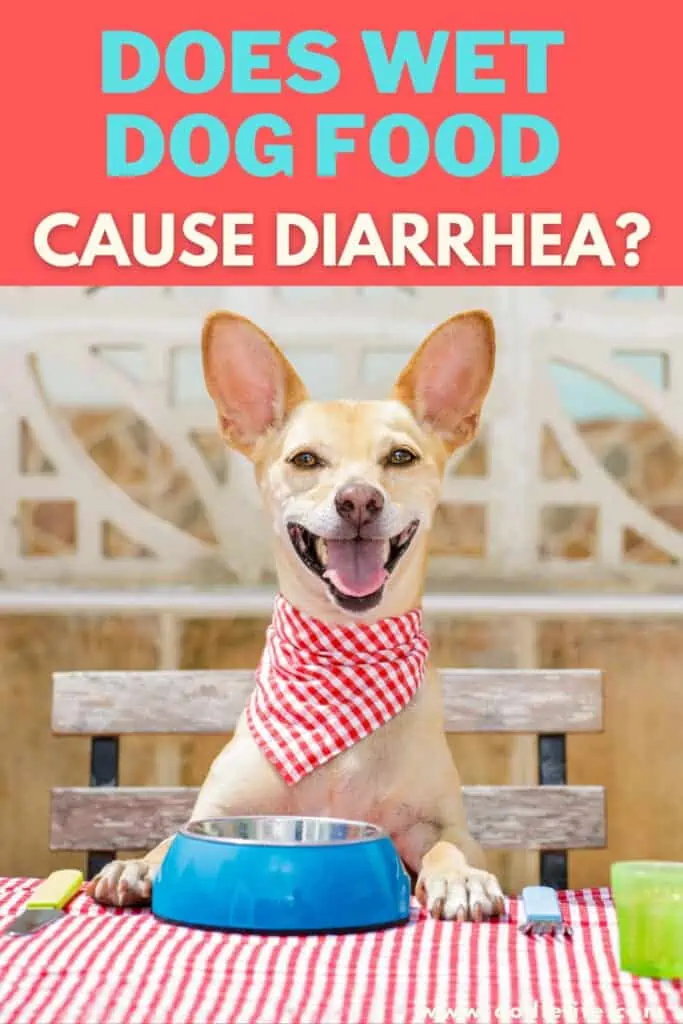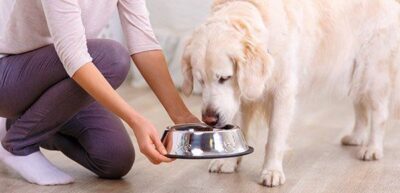As a pet parent, you want to ensure that your furry friend’s diet is healthy and nutritious. However, with so many options available, it can be confusing to decide what’s best for your dog. Wet food is a popular choice among many pet owners, but there’s a common concern that giving it to your dog may lead to diarrhea.
In this article, we’ll explore whether or not wet food can cause diarrhea in dogs. We’ll discuss the potential causes of diarrhea, the benefits of wet food, and how to introduce it into your dog’s diet safely. So, let’s dive in and get all the answers you need to make an informed decision about your dog’s diet!
Wet food can cause diarrhea in dogs if it contains low-quality ingredients or if you switch to it suddenly without gradually introducing it to your dog’s diet. However, wet food can also provide hydration and essential nutrients that dry food lacks. To avoid diarrhea, choose high-quality wet food and introduce it gradually by mixing it with your dog’s current food over a period of 7-10 days.

Will Wet Food Make My Dog Have Diarrhea?
Wet food has always been a popular choice among pet owners, but many pet parents fear that feeding their dogs with wet food may cause diarrhea. So, is there any truth to this claim? Let’s dive into the details and find out.
Wet Food: What Is It?
Wet dog food is canned or packaged food that contains a high amount of moisture, usually around 75% to 80%. It is made of fresh meat, vegetables, fruits, and other healthy ingredients, and it provides a well-balanced diet for your furry friend. Wet food is also an excellent source of hydration, especially for dogs who don’t drink enough water.
Benefits of Wet Food
Wet food has several benefits for your dog, including:
- Provides a high level of moisture
- Easy to digest
- Contains fewer preservatives and additives
- More palatable for picky eaters
Drawbacks of Wet Food
Despite its benefits, wet food also has some drawbacks, such as:
- Expensive compared to dry food
- Shorter shelf life
- May cause dental problems
- May cause digestive issues
Can Wet Food Cause Diarrhea in Dogs?
Feeding your dog with wet food does not necessarily cause diarrhea. However, sudden changes in diet, including switching from dry to wet food, may cause digestive issues, including diarrhea. Additionally, some dogs may have food sensitivities, which can trigger diarrhea.
Symptoms of Diarrhea in Dogs
Diarrhea is a common digestive issue in dogs, and it can be caused by various factors, including diet changes. The symptoms of diarrhea in dogs include:
- Loose, watery stools
- Increased frequency of bowel movements
- Loss of appetite
- Vomiting
- Fever
How to Prevent Diarrhea in Dogs
Preventing diarrhea in dogs involves gradual diet changes, maintaining proper hygiene, and ensuring your dog gets enough water. Here are some tips to prevent diarrhea in dogs:
- Gradually introduce new foods to your dog’s diet
- Ensure your dog is well hydrated
- Maintain proper hygiene
- Monitor your dog’s bowel movements
- Consult with your vet if diarrhea persists
Wet Food vs. Dry Food
The debate between wet food and dry food has been ongoing among pet owners. Both types of food have their benefits and drawbacks, and choosing the right one depends on your dog’s needs and preferences.
Benefits of Dry Food
Dry food has several benefits, including:
- More affordable than wet food
- Longer shelf life
- Good for dental health
- Convenient for busy pet parents
Drawbacks of Dry Food
Despite its benefits, dry food also has some drawbacks, such as:
- Lower moisture content
- May contain more additives and preservatives
- May cause dehydration in dogs who don’t drink enough water
- May cause dental problems in dogs who don’t chew their food properly
So, Which One Is Better?
Choosing between wet food and dry food depends on several factors, including your dog’s age, size, and health condition. However, a combination of both wet and dry food may provide a well-balanced diet for your furry friend.
Conclusion
Feeding your dog with wet food does not necessarily cause diarrhea. However, sudden changes in diet, including switching from dry to wet food, may cause digestive issues, including diarrhea. To prevent diarrhea in dogs, it is essential to introduce new foods gradually, maintain proper hygiene, and ensure your dog gets enough water. Additionally, choosing between wet and dry food depends on your dog’s needs and preferences. Consult with your vet to determine the best food for your furry friend.
Frequently Asked Questions
Will wet food make my dog have diarrhea?
It is possible that wet food can cause diarrhea in dogs, but it is not always the case. Wet food has a higher moisture content than dry food, which can affect your dog’s digestive system. However, the quality of the wet food you give your dog can also play a role in whether or not they experience diarrhea.
If you are introducing wet food to your dog’s diet for the first time, it is recommended that you do so gradually. Start by mixing a small amount of wet food with their dry food and gradually increase the amount over time. This will give your dog’s digestive system a chance to adjust to the new food and reduce the risk of diarrhea.
How can I tell if wet food is causing my dog’s diarrhea?
If your dog is experiencing diarrhea after eating wet food, it is important to pay attention to the frequency and consistency of their bowel movements. Diarrhea is characterized by loose or watery stools that occur more frequently than usual. If you notice any blood in your dog’s stool, it is important to contact your veterinarian immediately.
You may also want to consider switching to a different brand or type of wet food to see if that helps improve your dog’s digestive health. It is important to choose a high-quality wet food that is made with wholesome ingredients and does not contain any artificial preservatives or fillers.
Can I mix wet and dry food together?
Yes, it is perfectly fine to mix wet and dry food together to create a balanced diet for your dog. In fact, many pet owners choose to do this to provide their dogs with a variety of textures and flavors. Mixing wet and dry food can also help to prevent your dog from becoming bored with their diet and encourage them to eat more.
When mixing wet and dry food, it is important to keep the proportions balanced. Your dog’s diet should consist of 75% dry food and 25% wet food to ensure that they are getting all of the necessary nutrients they need to stay healthy.
What are some other causes of diarrhea in dogs?
Diarrhea in dogs can be caused by a variety of factors, including dietary changes, food allergies, parasites, infections, and underlying health conditions. If your dog is experiencing diarrhea, it is important to consult with your veterinarian to determine the underlying cause and develop an appropriate treatment plan.
Your veterinarian may recommend diagnostic tests, such as a fecal exam or blood work, to help determine the cause of your dog’s diarrhea. Treatment may include medication, dietary changes, and other supportive therapies to help your dog recover and prevent future episodes of diarrhea.
How can I prevent my dog from getting diarrhea?
There are several steps you can take to help prevent your dog from getting diarrhea. First, make sure that you are feeding them a high-quality diet that is made with wholesome ingredients and does not contain any artificial preservatives or fillers. It is also important to introduce new foods gradually to avoid upsetting your dog’s digestive system.
Other ways to prevent diarrhea include providing your dog with plenty of fresh, clean water, keeping their living area clean and free of parasites, and ensuring that they get plenty of exercise and mental stimulation. Regular check-ups with your veterinarian can also help to identify any potential health issues before they become more serious.

In conclusion, whether wet food will make your dog have diarrhea depends on several factors. It’s important to introduce new foods gradually, especially if your dog has a sensitive stomach. Additionally, wet food typically has a higher moisture content, which can help prevent dehydration and promote healthy digestion. However, some dogs may have an adverse reaction to certain ingredients in wet food, so it’s important to read labels carefully and monitor your dog’s reactions. Ultimately, consulting with your veterinarian can help you determine the best diet for your furry friend and ensure they stay happy and healthy.
